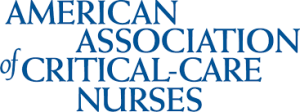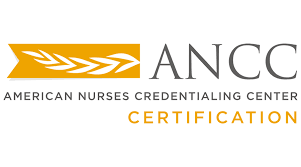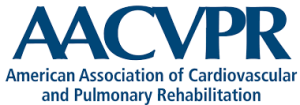
Cardiac Nursing
A certified cardiac nurse is a registered nurse who specializes in the cardiovascular system’s care. They are usually specialized advanced practice registered nurses (APRNs) who work with cardiologists and other healthcare professionals. They provide cardiovascular care for patients with chronic and acute heart conditions and cardiovascular diseases. A certified cardiac nurse, or cardiac nurse specialist, is qualified to work in clinics, labs, telemetry care, cardiac care units, and more. A Certified Cardiac NP has the same qualifications as above but holds a master’s degree or higher.
What is a Cardiac Nurse?
Cardiac nursing is an intense role that provides life-giving care to patients who need ongoing medical help. A Certified Cardiac Nurse can work with all age ranges from pediatrics to geriatrics.
Becoming a cardiac nurse begins by earning a bachelor’s or master’s of science in nursing (BSN/MSN). Then nurses study for a certification. A registered nurse must take and pass either the Adult Cardiac Medicine (CMC) or Adult Cardiac Surgery (CSC) exam. If they pass, these nurses can work in cardiology alongside physicians or in a chosen setting.
How Long Does it Take to Become a Cardiac Nurse?
The answer depends on the educational path you take to become a nurse. It takes two years to earn an associate’s degree to become an RN. Still, you may find it challenging to become a cardiac nurse without further education and working for a minimum of 2,000 hours in cardiac nursing before sitting for one of the certifications. Most certified cardiac nurses have earned their master’s degree in nursing before sitting for the exam to become effective CCNs.
What Does a Cardiac Nurse Do?
A cardiac nurse specialist provides support to both patient and the cardiologist. They explain treatment plans, follow up with patients, record data collected by heart monitors and telemetry equipment, and track a patient’s progress. A cardiac nurse can work in an emergency room, in a clinical setting, and also work as a traveling nurse. The exact nursing duties depend on where they work and their certifications.
A nurse that has trained in advanced cardiovascular life support is qualified to work with patients who are in a cardiac emergency situation. In contrast, a nurse with telemetry skills may work directly with patients or in a setting where they monitor the telemetry information of patients on heart monitors. And with cardiac catheterization training, they can work in critical or acute care environments and with medical technicians trained to work in telemetry care.
The field of cardiac care has further specializations. For example, some focus on maintaining cardiac devices and showing patients how to use them. Nurses in these jobs work with patients who have heart failure. They also assist patients as they recover from a cardiac event, heart surgery, or implantation of a medical device that regulates their heart.
How Much Does a Cardiac Nurse Make?
What’s the average salary for a cardiac nurse? The US Bureau of Labor Statistics lists the median pay for nurses at $75,330 per year for those Registered Nurses. However, the BLS does not specifically state the average cardiac nursing salary. And it categorizes the role under the general designation of registered nursing. The role of the cardiac nurse is a specialized role that requires advanced education.
In addition, nurses must pass a certification exam. Because of the extensive training, the role demands a higher salary. A cardiac nurse’s salary can range between $61,000 on the low and $120,000 on the upper end. Location is also a factor in the average wage.
What is the Job Outlook?
The job outlook for cardiac nursing is trending upward as the Baby Boomer population ages and experiences issues that come with an aging body or genetic predispositions. Regional medical facilities are just as likely to have a large population of older adults that need cardiac care in amounts similar to a medium-sized city. When looking at how much a cardiac nurse makes, it’s quickly apparent that it’s well-compensated in most areas of the country.
What are the Eligibility Requirements for a Cardiac Nurse Certification?
The complete eligibility requirements differ between certifications. However, below are some of the general eligibility requirements.
- Possess a current and unrestricted RN license in the United States or its territories.
- Have a minimum of 2,000 hours of specialized practice in the area of cardiovascular nursing within the last three years.
- Have completed 30 hours of continuing education in cardiovascular nursing within the last three years.
- Have a minimum of one year of clinical practice in the area of cardiovascular nursing within the last three years.
- Possess basic life support (BLS) certification.
- Successfully pass the Cardiac Nurse Certification (CNC) examination.

1. AACN Nursing Certifications
The American Association of Critical-Care Nurses (AACN) offers Cardiac Nurse Certifications. The certification is available to registered nurses with at least two years of experience as cardiovascular nurses. These professionals must also complete continuing education in cardiovascular nursing in the past three years. And they must successfully complete the certification examination.
CMC Adult – Cardiac Medicine Certification
This cardiac vascular specialty certification CMC (Adult) is for nurses who provide direct care to acutely or critically ill adult cardiac patients. Nurses may work in medical ICUs, telemetry, progressive care, heart failure clinics, interventional cardiology, and electrophysiology units.
From: AACN – CMC Adult
Certificate Name: Cardiac Medicine Certification
Credential Awarded: CMC Adult
Cost: AACN members – $140, non-member – $230
Eligibility Criteria:
- hold an active RN or APRN license unencumbered
- have a current nationally accredited clinical nursing specialty certification
- complete the clinical practice hour requirements of 1,750 hours in direct care over 2 years or 2,000 hours in direct care over 5 years
CSC Adult – Cardiac Surgery Certification
This cardiac vascular specialty certification CMC (Adult) is for nurses who provide direct care to acutely or critically ill adult cardiac surgery patients in the first 48 hours postoperatively.
From: AACN – CSC Adult
Certificate Name: Cardiac Surgery Certification
Credential Awarded: CSC Adult
Cost: AACN members – $140, non-member – $230
Eligibility Criteria:
- hold an active RN license unencumbered or an APRN license
- have a current nationally accredited clinical nursing specialty certification
- complete the clinical practice hour requirements of 1,750 hours in direct care over 2 years or 2,000 hours in direct care over 5 years

2. ANCC Certification
The ANCC Cardiac-Vascular Nursing Board certification examination is a competency-based examination that provides a valid and reliable assessment of the entry-level clinical knowledge and skills of registered nurses in the cardiac-vascular specialty after initial RN licensure.
Cardiac Vascular Nursing Certification (CV-BC)
Where Can I Get a Cardiac Vascular Nursing Certification? The Cardiac-Vascular Nursing Certification (CV-BC) is a credential the American Nurses Credentialing Center (ANCC) awarded to registered nurses who pass the Cardiac-Vascular Nursing Certification exam. A cardiac vascular nurse with this certification has demonstrated entry-level clinical skills and knowledge.
From: American Nurses Credentialing Center (ANCC) and accredited by the Accreditation Board for Specialty Nursing Certification (ABSNC).
Certificate Name: Cardiac Vascular Nursing Certification
Credential Awarded: Cardiac Vascular Nurse – Board Certified (CV-BC), RN BC Board Certified
Cost: for the Cardiac Vascular Nurse certification for Non-Member: $395, American Nurses Association member: $270, Society for Vascular Nursing members: $340, Preventive Cardiovascular Nurses Association members: $340
Eligibility Criteria:
- a current RN license in the US ( or legally recognized equivalent in another country)
- work 2 years full time as a registered nurse
- a minimum of 2,000 hours of clinical practice in cardiovascular nursing in the last 3 years to take the exam
- completed 30 continuing education hours in cardiovascular nursing within the last 3 years
- pass the exam – ANCC Cardiac-Vascular Nursing board certification examination
What are the Parts of the Cardiac Vascular Nursing Certification Exam?
The Cardiac Vascular, Nursing Certification Exam, administered by the American Nurses Credentialing Center (ANCC) consists of the following sections:
- Cardiac Anatomy and Physiology
- Cardiac Assessment
- Cardiac Pathophysiology
- Cardiac Interventions
- Cardiac Pharmacology
- Vascular Anatomy and Physiology
- Vascular Assessment
- Vascular Pathophysiology
- Vascular Interventions
- Vascular Pharmacology
- Cardiac Vascular Nursing Practice
3. ABCM Certification
You can get a Cardiac Nursing Certification through the American Board of Cardiovascular Medical Accreditation (ABCM). The ABCM offers a Cardiac Vascular Nursing Certification program with an online exam and a clinical practicum. The program is designed to equip nurses with the knowledge, skills, and abilities to provide optimal care for patients with cardiac and vascular diseases.
Cardiovascular Nurse Level I and Level II
From: (ABCM)
Certificate Name: Cardiovascular Nurse-Level I and Level II
Credential Awarded: CVRN-BC (Cardiovascular Registered Nurse, Board Certified)
Cost: For Level, I certification is $349 for non-members and for ACCN, ACCNP, and SCM members.
Eligibility Criteria:
- Current RN or NP license
- Have at least 1-2 years of acute care experience in cardiac care including cardiac cath labs
- Continuing education hours are not required for initial certification but are required for recertification.
Certified Cardiac Nurse Practitioner (CCNP)
Consider becoming a Certified Cardiac Nurse Practitioner (CCNP) to improve your earning potential. These nurses are qualified to work in the same areas as cardiac nurses but have a more comprehensive range of treatment protocols available. Cardiac NPs are specialists in cardiac care with a master’s degree in nursing or higher.
Cardiovascular Nurse Practitioner (CVNP-BC)
From: The American Board of Cardiovascular Medicine (ABCM)
Certificate Name: CVNP-BC Level IV Certification Exam for Cardiovascular Nurse Practitioner

4. AACVPR Certification
Certified Cardiac Rehabilitation Professional (CCRP)
This certification in cardiac rehabilitation is recognized by the American Nurses Credentialing Center for inclusion on their Magnet Recognition Program list.
From: American Association of Cardiovascular and Pulmonary Rehabilitation (AACVPR)
Certificate Name: Certified Cardiac Rehabilitation Professional (CCRP)
Eligibility Criteria:
- Have at least 1,200 clinical hours in cardiac rehabilitation
- Hold a bachelor’s degree or higher in a health-related field from an accredited college or university, or be licensed as an RN
Resources
- American Nurses Credentialing Center (ANCC)
- American Board of Cardiovascular Medicine (ABCM)
- Preventive Cardiovascular Nurses Association (PCNA)
Related:






